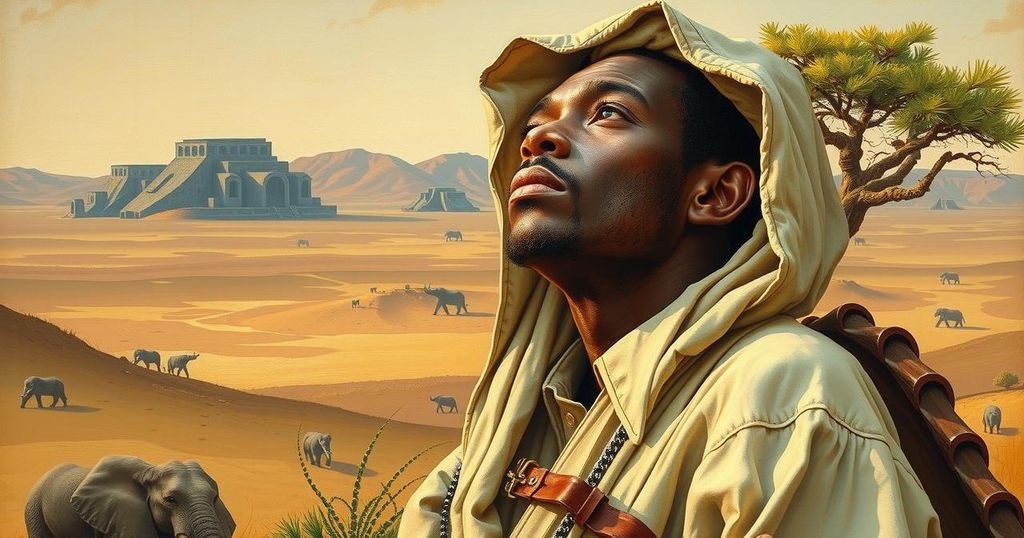Jimmy Carter’s presidency marked a turning point in U.S.-Africa relations as he became the first American president to visit sub-Saharan Africa and emphasized the importance of human rights and health initiatives. His support of Zimbabwe’s transition to independence was pivotal, and his work since leaving office focused on disease eradication and empowering African nations. Carter’s legacy is characterized by a compassionate and democratic approach, cementing his influence on the continent’s development.
Jimmy Carter stands as a seminal figure in U.S.-Africa relations, being the first U.S. President to undertake a state visit to sub-Saharan Africa in 1978. His presidency marked a significant departure from previous American foreign policy, as he acknowledged the continent’s growing importance during a period when many nations were attaining independence. Carter’s presidency emphasized the U.S.’s responsibility towards Africa, which was historically neglected despite its rapid political changes during the 1960s and 1970s.
Throughout his presidency and beyond, Carter prioritized civil and political rights, emphasizing human rights advocacy as a cornerstone of U.S. foreign policy. This dedication is particularly reflected in his tenure over regions like Zimbabwe, where he played an instrumental role in aiding the transition to majority rule. Notably, Carter considered assisting Zimbabwe’s independence as “our greatest single success.” His involvement extended well past his presidency, as he engaged consistently with the continent, forming initiatives aimed at empowering African nations and improving health standards.
Carter’s humanitarian efforts, particularly in fighting diseases such as Guinea worm disease through The Carter Center, left a profound impact, attesting to his views on health as a fundamental human right. His legacy is further cemented by the fact that he remained an active contributor to African affairs, often championing democracy and human rights, even criticizing oppressive regimes when necessary.
Carter’s approach in Africa, rooted in personal faith and a commitment to justice, is a crucial part of his legacy. His work laid the groundwork for future U.S. presidents to regard Africa not merely as a geopolitical arena but as a partner in fostering global democracy and health improvements. The resonance of his advocacy for continental agency, showcased in quotes from African leaders lauding his contributions, illustrates the lasting influence he has had on the region’s history and its ongoing development.
Above all, Carter’s relentless pursuit of health improvements and political integrity stands as a testament to his lifelong commitment to the betterment of the African people, showcasing a vision of mutual respect and partnership between the U.S. and African nations.
Jimmy Carter was indeed a beacon of hope in times when many leaders overlooked the continent, affirming that his compassionate and humanistic approach to foreign policy was transformative and effective for a world that continues to grapple with issues of health, governance, and human rights.
The discussion surrounding former President Jimmy Carter is steeped in the context of U.S. and African relations. Historically, U.S. attention towards Africa was minimal, especially during the formative years of independence for many African nations. Carter’s presidency, beginning in the late 1970s, marked a pivotal shift in this dynamic, with a focus on civil rights and health issues on the continent. His emphasis on human rights laid the foundation for further American engagement in Africa, framing the nation not only as a geopolitical power but also as a partner committed to supporting African development. This new engagement model continued to echo in American foreign policy long after Carter left office.
In conclusion, Jimmy Carter’s contributions to U.S. relations with Africa remain profound and lasting. He redefined American engagement with the continent, placing human rights and health at the forefront of U.S. foreign policy. His pioneering role as the first sitting president to visit sub-Saharan Africa, along with his commitment to ending diseases like Guinea worm disease, highlights his holistic approach to international relations. The enduring respect he garnered from African leaders and communities underscores his legacy as a steadfast advocate for democracy and development in Africa, one that continues to influence subsequent generations and policies.
Original Source: apnews.com






